Fashion AI is changing the industry forever
by Jess Erdman, Content Marketing LeadJune 2023

If you’ve read any retail news in the past few years, you’ve likely heard lofty statements about how fashion AI is taking over the industry--and the consequences (either good or bad, depending on your optimism) for the entire fashion ecosystem, from supply chain to stores. In our latest article, we break down AI in the fashion industry--and why you should care in 2023, in 5 simple questions.
Are you interested in learning more about the latest trends in fashion tech?
Everyone from large fast-fashion retailers like H&M to smaller brands looking to heighten the customer experience. In 2023, we expect to see an uptick in the number of retailers using fashion AI. We also expect that fashion eCommerce companies will begin to integrate AI more deeply into their product strategies, as customers continue to shop online. As technology continues to develop and become more commonplace (for example, ChatGPT), we expect that retailers will be even more open than ever in embracing AI-powered product discovery.
By using predictive analytics, businesses can understand their internal processes better, whether that’s tracking the supply chain or forecasting demand on product sales. AI in the fashion industry can use past data, combined with machine learning, to try to predict future actions.
While predictive analytics can be implemented across industries, there are fashion-specific uses for artificial intelligence as well.
For example, brands are not only using fashion AI to predict trends but to re-think an experience that many of us dread: the fitting room experience. Companies such as Drapr are using fashion AI to create 3D models of brand’s catalogs, so the customer can visualize the clothing on her body type. Google just announced the virtual try on which allows users to pick a model and see how clothes look on a variety of real models.
:no_upscale():format(webp)/cdn.vox-cdn.com/uploads/chorus_asset/file/24726417/Google_Shopping_Anthropologie_gif.gif)
It’s also changing the way brands create customer experiences. Through recommendations and search/discovery powered by AI, brands are completely rethinking the product search process from the point of view of the customer. Product recommendations can be personalized to a customer’s unique buying attributes
At YesPlz, we use fashion AI to create all-in-one product discovery for retailers. We use fashion tagging to create multiple discovery suites, like search and reocmmendations.
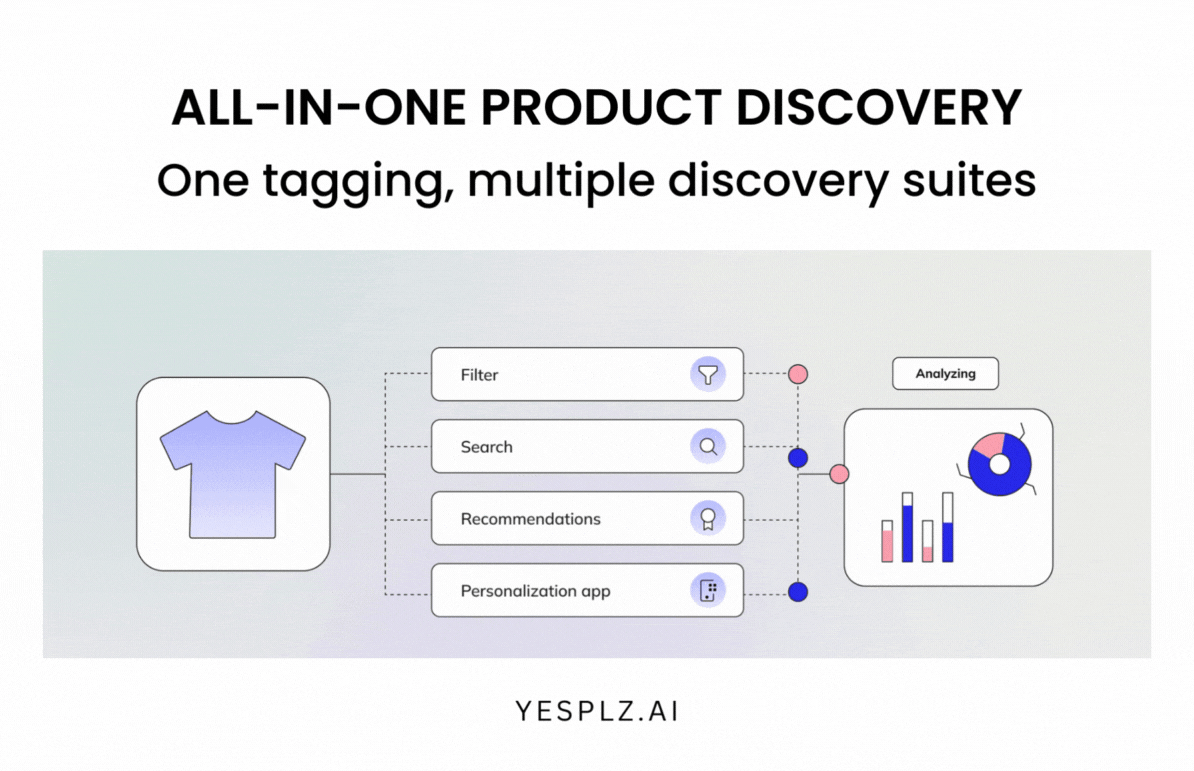
One of our discovery suites, the Virtual Mannequin Filter, pulls products for customers based on attributes that matter to them, such as clothing fit, neck style, and shirt style.
Our fashion AI is trained specifically to understand fashion-based attributes, so product search results are both accurate and highly relevant. By creating a universal fashion language that any customer can understand, we’ve enabled customers to visually demonstrate their style preferences, which in turn, guide our proprietary AI algorithm to deliver even better search results that are carefully curated for each customer.
And, retailers are starting to embrace using ChatGPT to make search better. For example, retailers are building ChatGPT-search tools in-house to help solve confusing search.
However, not all ChatGPT for fashion tools are the same. YesPlz is focused on improving overall eCommerce discovery versus making incremental search improvements. You can learn about the differences here.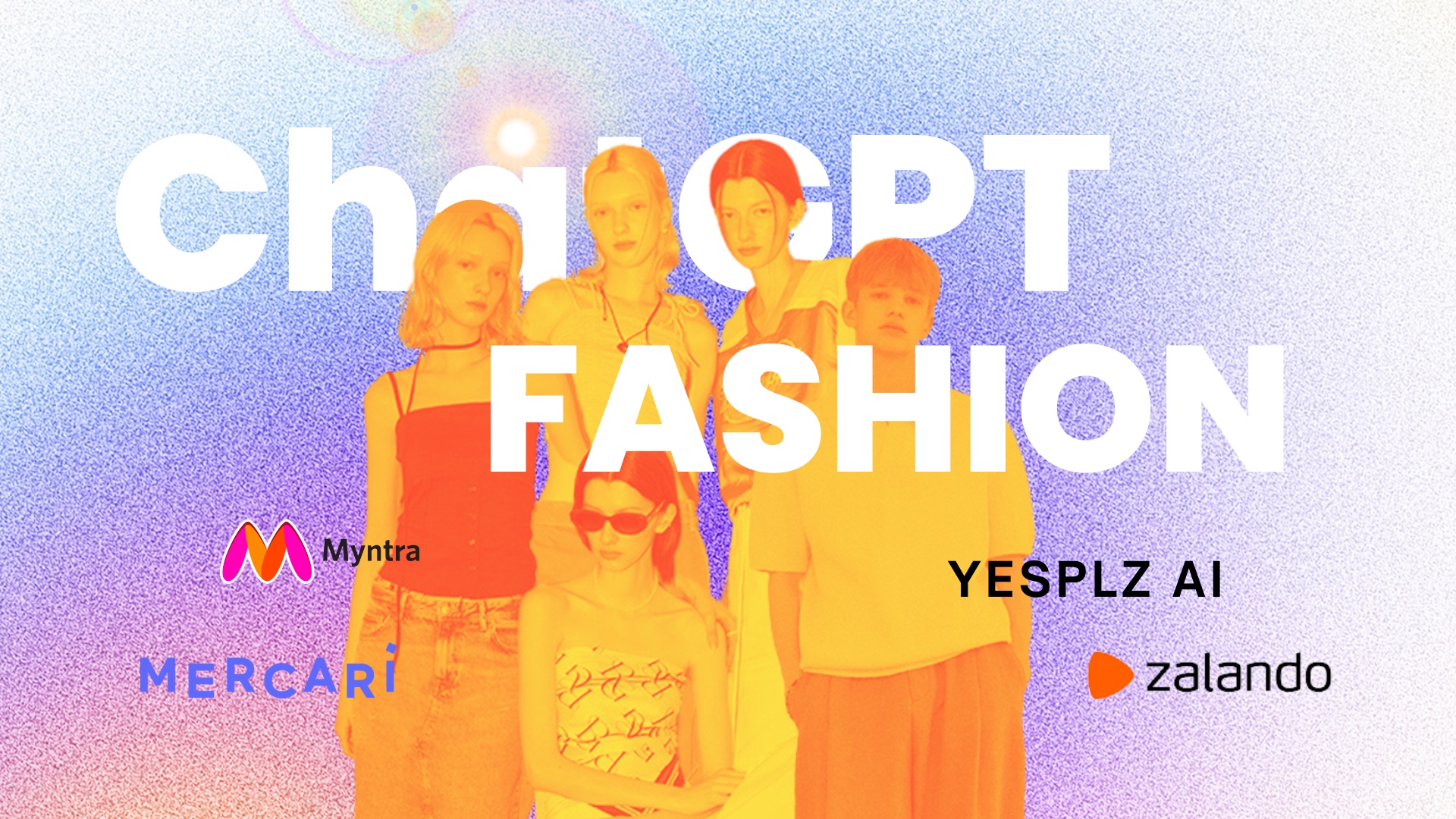
One of the debates among designers and brands is whether technology can replace the design-work or trend-forecasting abilities of a human with real-life industry knowledge. Because the algorithm is trained by people (for example, at YesPlz, our algorithm is trained by real customer interview data points), it is unlikely that human touch will be totally eliminated in the world of retail.
And, with the ongoing 2023 fashion AI revolution, it can be hard to tell whether ChatGPT for fashion is all hype or here to stay? Our experts debate the answer here.
With both ChatGPT for fashion and other forms of AI in the fashion industry, technology is amplifying the capabilities that humans have by allowing us to perform analyses at scale. For example, if you were to try to pull products on an eCommerce site that match a customer’s requirements based on size, fit, color, and so on, it would be tedious and possibly inaccurate, even with the help of software.
By utilizing fashion AI, we can go above and beyond, and pull relevant products for customers in seconds--products that are far more relevant to a customer’s unique search journey.
Over the past few years, retailers have increased their use of fashion artificial intelligence to make better business decisions and benefit customers. However, in light of the events of 2020, customers became increasingly more sophisticated online shoppers. Retailers met their needs by elevating the customer experience, from using AI behind the scenes to analyze inventory to making it front-and-center in selecting relevant products.
In the past year alone, we've seen an uptick in the number of use cases for fashion AI--from conversational AI chatbots to using computer vision to blend physical and digital retail. For more information, check out our Top 5 Fashion AI Startups of 2022.
And, with ChatGPT for fashion, retailers are rushing to integrate AI into the product discovery experience.
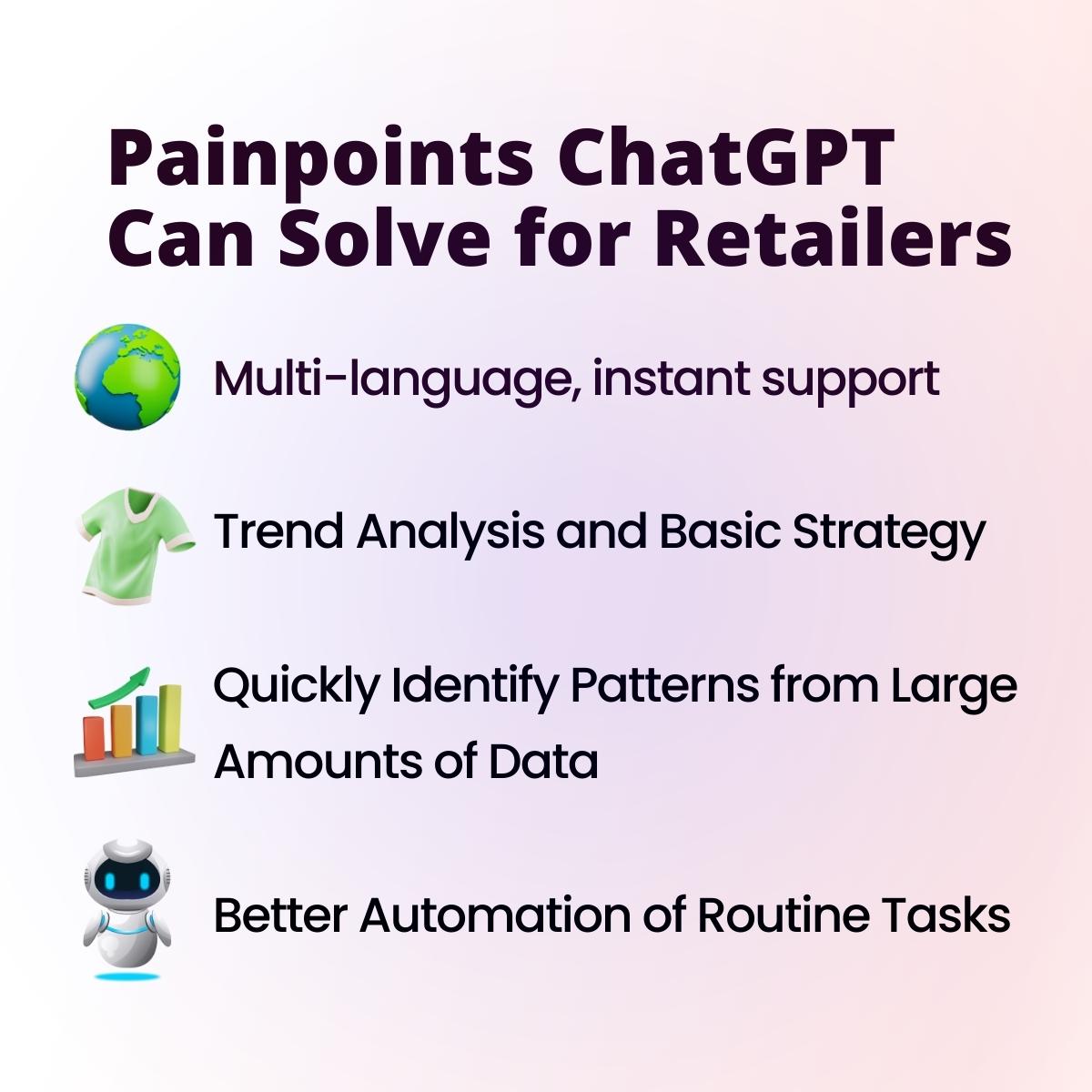
AI in the fashion industry is continuing to evolve in 2023, and technology is able to create more advanced AI algorithms, resulting in even higher adoption rates of fashion AI tools.
As a fashion retailer, ChatGPT is emerging as one of the most important ways to leverage AI in the fashion industry. But, ChatGPT alone isnt enough. By combining ChatGPT with pre-existing AI technology, retailers can offer curated product recommendations, outstanding search filters, and generate robst product descriptions.
For example, YesPlz's AI Stylist is built using combined AI technologies: a fashion transformer, NLP, computer vision, and ChatGPT's generative AI.
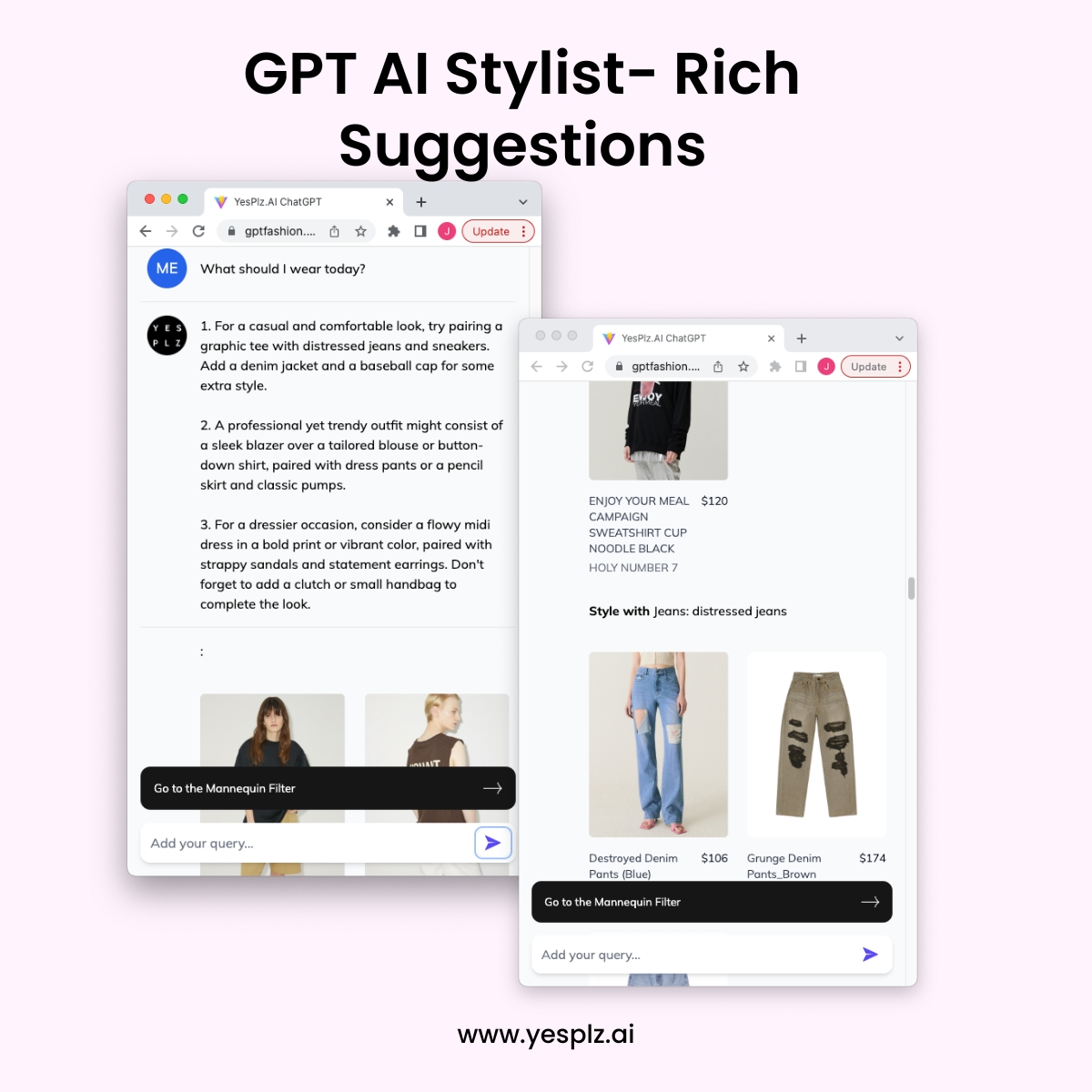
Are you ready for the future of AI in fashion?
Written by Jess Erdman
Content Marketing Lead
I'm passionate about creating cool content. The best part? I get to learn new things about fashion tech and ecommerce everyday. Have an idea or opinion about this article? Reach out at jess@yesplz.ai
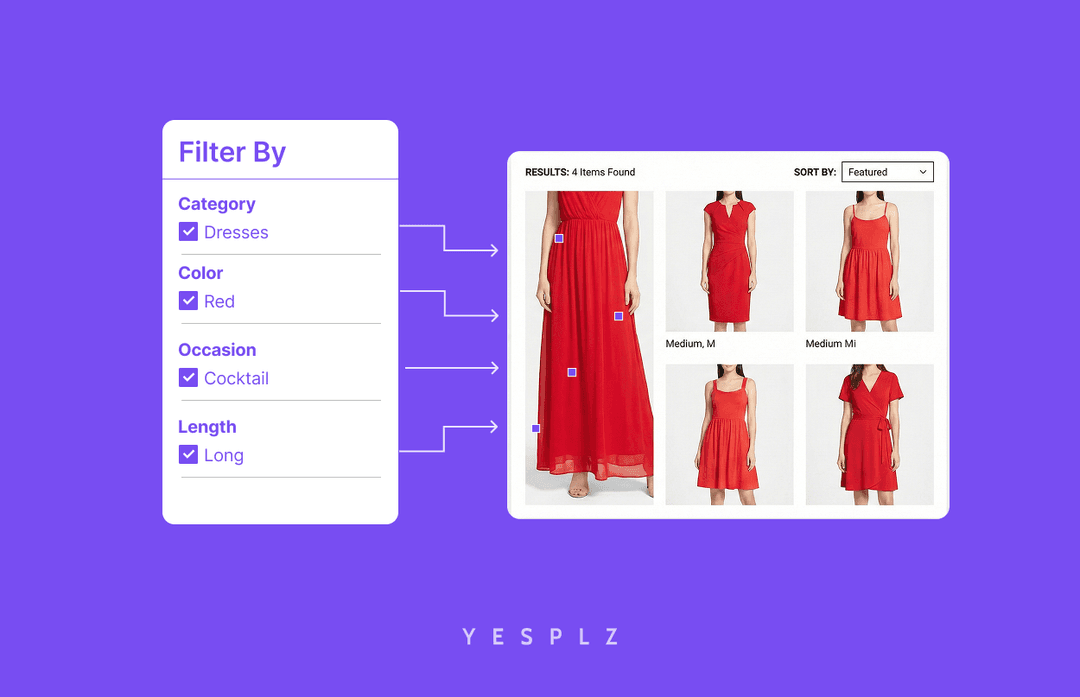
Stop losing sales to poor product filtering. Discover how AI simplifies creating Shopify filters, saving you 25-50 hours per 100 products.
by YesPlz.AI
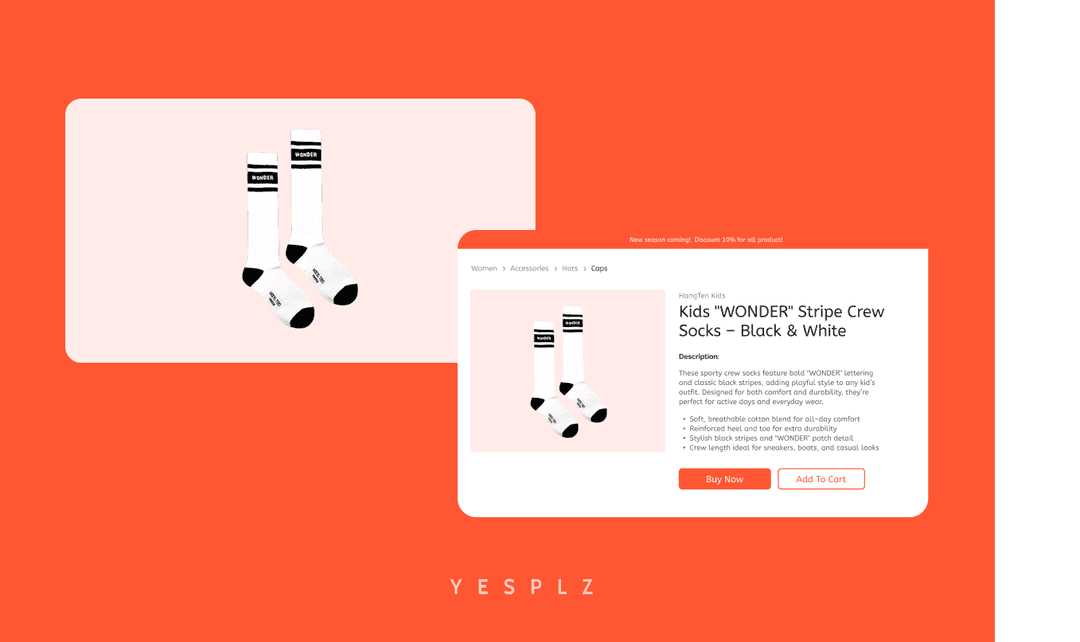
Automate Shopify product pages and cut 50–100 hours of manual work. AI generates product titles, descriptions, and metadata instantly from product images.
by YesPlz.AI